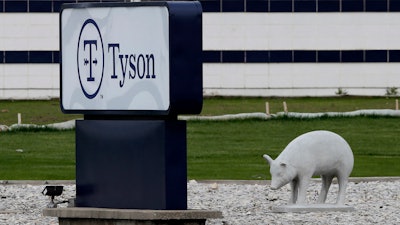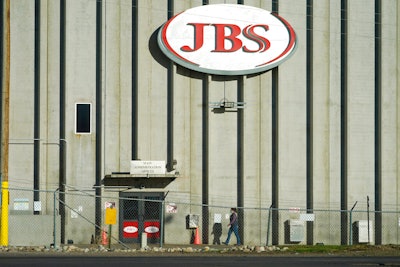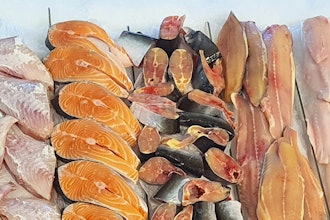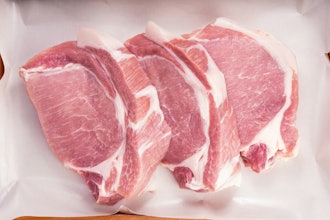
In a Sept. 8 blog post, the Biden administration addressed several issues impacting consumer prices for meat products, going heavy on a "lack of competition" in an industry that has become very top-heavy — dominated by a handful of major meat processing companies.
In response, the administration said it is taking action to alleviate recent price increases by enforcing antitrust laws, boosting competition and pushing back on "pandemic profiteering that is hurting consumers, farmers, and ranchers across the country."
The Biden administration's blog cited large price increases for beef (+14.0%), pork (+12.1%) and poultry (+6.6%) as accounting for half of the total price increase for grocery store food shopping since December 2020.
It adds that four large conglomerates control between 55-85% of the market for these products, citing USDA data, adding that the four largest beef-packing firms control 82% of that market today, compared to just 25% in 1977. Similarly, the blog cites, the top four poultry processing firms control 54% of that market today, compared to 35% in 1986; and the top four hog-processing firms control 66% of that market today, compared to 33% in 1976.
"That consolidation gives these middlemen the power to squeeze both consumers and farmers and ranchers," the blog states. "There’s a long history of these giant meat processors making more and more, while families pay more at the grocery store and farmers and ranchers earn less for their products. Absent this corporate consolidation, prices would be lower for consumers and fairer for farmers and ranchers."
 In this Oct. 12, 2020 photo, a worker heads into the JBS meatpacking plant in Greeley, Colo.AP Photo/David Zalubowski, File
In this Oct. 12, 2020 photo, a worker heads into the JBS meatpacking plant in Greeley, Colo.AP Photo/David Zalubowski, File
The blog post goes on to claim those meat giants are generating record profits during the pandemic, and "at the expense of consumers, farmers and ranchers."
To combat this issue, the White House says, it will crack down on illegal price-fixing, enforce antitrust laws and bring more transparency to the meat processing industry.
Other actions the White House says it will take include:
- Providing relief to small businesses and workers hurt by COVID, and creating a more competitive food supply chain. This includes a $1.4 billion USDA investment in pandemic assistance to provide relief to small producers, processors, distributors, farmers markets, seafood processors, and food and farm workers impacted by COVID-19.
- Getting ahead of climate change-related disruptions by supporting farmers and ranchers from the effects of extreme weather.
- Working with Congress to make cattle markets more transparent and fairer.
Meat Leaders Push Back
Understandably, leaders in the meat industry promptly responded back on the White House's commentary, rejecting points made by the Biden administration. Tyson Foods posted a press release on Sept. 8 headlined "Tyson Foods Categorically Rejects Conclusions Drawn by White House," in which the US' largest meat company emphasized its stance that the increase in the price of beef, in particular, is due to "unprecedented market conditions," while labor shortages are exacerbating the issue.
"It is inaccurate to suggest that consolidation in the meat processing industry is leading to higher prices for consumers," Tyson states. "In fact, evidence of healthy competition can also be found by looking at historical outcomes. For example, we have seen a rise in availability and quality of beef, while the price has become more affordable over the past quarter-century: data shows that while the concentration of the industry has remained relatively constant for close to 30 years, quality has significantly improved."
Likewise, the North American Meat Institute put out a brief statement on Sept. 8 in response to what it calls "inflammatory statements regarding the meat and poultry industry and the price of consumer goods during a labor shortage and a pandemic.":
"As with almost every industry, meat and poultry packers and processors of all sizes have been, and continue to be, affected by the global pandemic and the inflationary trends that challenge the U.S. economy,” said Mark Dopp, Chief Operating Officer for the North American Meat Institute. “American consumers of most goods and services are seeing higher costs, largely due to a persistent and widespread labor shortage. The meat and poultry industry is no different. Issuing inflammatory statements that ignore the fundamentals of how supply and demand affects markets accomplishes nothing. Meat and poultry markets are competitive and dynamic with no one sector of the industry consistently dominating the market at the expense of another.”






















